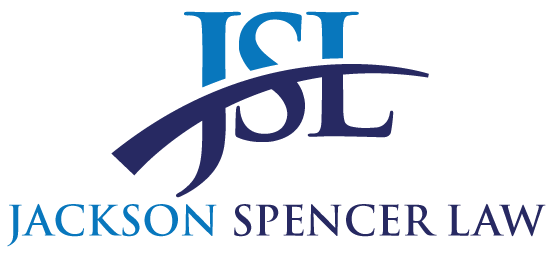Since Congress launched an impeachment inquiry against President Trump in September, there’s been a lot of talk about whistleblower protections filling the news cycle. Even Texas Republican Will Hurd has expressed the importance of keeping whistleblowers’ identities confidential to encourage exposure of corruption.
At Jackson Spencer Law, we have decades of experience advocating for whistleblowers. This article covers three of the most frequently asked questions we encounter in our whistleblower practice: what a whistleblower is, what laws protect whistleblowers, and how to make a whistleblower claim.
Whether you’re interested in learning more about whistleblowing to keep up with current events or considering filing a whistleblower claim, this article will bring you up to speed.
Let’s dive right in with a simple explanation of what constitutes, “whistleblowing.”
If have been experiencing issues at work, such as discrimination, wrongful suspension, or wrongful termination, contact us for a free consultation with our legal team.
What is a whistleblower?
A whistleblower is anyone who reports gross mismanagement, abuse of authority, or other illegal or unethical activity to management or authorities with oversight capacity. One or more people can act as a whistleblower, but companies and organizations do not qualify for whistleblower protections. Whistleblowers can be federal employees, employees of a public or private company, or third parties who have information that wrongdoing has occurred.
Whistleblowers may qualify for financial rewards, if their claim is substantiated. Typically, this reward is a percentage of the monies a government body is able to recover. Working with an experienced whistleblower attorney to craft a quality whistleblower claim significantly increases your chances that your claim will lead to an adequate investigation and award.
What laws protect whistleblowers?
There are many laws and acts protecting whistleblowers at the state and federal level. While each Act encourages whistleblowers to report violations of a different nature, they offer similar protections. Most whistleblower provisions permit a whistleblower to remain anonymous, if an attorney makes their claim. Whistleblowers are also protected from retaliation on behalf of their employers or government entities.
The list that follows is not exhaustive, but a general overview of some of the most well-known whistleblower laws.
False Claims Act. The False Claims Act aims to prevent (and punish) companies for falsifying information to obtain public funds, overcharging for products or services, providing the government with inferior products or services, keeping overpayments from the government or avoiding paying the government. People who make claims under the False Claims Act can be awarded up to 30 percent of the government’s recovery.
Dodd-Frank Act, Sarbanes Oxley Act & the SEC Whistleblower Program. These Acts protect whistleblowers who report federal securities law violations, financial wrongdoing, and fraud against shareholders. These programs allow whistleblowers to receive 10-30 percent of the amounts recovered for claims of at least $1 million.
Internal Revenue Act. The IRS rewards whistleblowers who help them recover at least $2 million in unpaid taxes. If you have legitimate evidence that a company is avoiding paying or underpaying taxes, you could receive up to 30 percent of the amount recovered in excess of $2 million.
Foreign Corrupt Practices Act. This topical Act provides whistleblower protection for those who report bribery of foreign government officials by U.S. persons or public companies.
Financial Institutions Reform, Recovery, and Enforcement Act. This Act (otherwise referred to as FIRREA) protects whistleblowers who report federally insured banks for criminal activity like embezzlement, illegal bookkeeping, and mail fraud. Whistleblowers can be rewarded a percentage of recovered funds, up to $1.6 million.
Wildlife Whistleblower Reward Laws. Any whistleblower (including foreign sources) is encouraged to report wildlife trafficking, illegal logging, illegal poaching, and illegal fishing to help protect and enforce U.S. conservation and wildlife laws. If a whistleblower’s information leads to a successful enforcement action, they may qualify for monetary rewards.
Medicare and Medicaid Fraud. State and federal governments encourage individuals to report suspected Medicare and Medicaid fraud. Common types of Medicare or Medicaid fraud include billing for unnecessary procedures; billing for procedures never performed; unnecessary medical tests; or unnecessary equipment. Whistleblowers may be able to recover rewards for Medicare/Medicaid fraud from both their state and federal government.
Environmental Whistleblowers. Seven of the major federal environmental laws protect corporate whistleblowers. The environmental laws offering whistleblower protection are the Clean Air Act, Toxic Substances Act, Clean Water Act, Atomic Energy Act, Solid Waste Act, Safe Drinking Water Act, and Superfund.
Whistleblower Protection Act. The Whistleblower Protection Act provides a way for federal employees to report misconduct and protects them from retaliation.
State Whistleblower Acts. In Texas, the Medicaid Fraud Prevention Act is dedicated to stopping Medicaid fraud, and whistleblowers may be eligible to receive up to 30 percent of the Texas government’s recovery. Each state has their own whistleblower protections above and beyond the federal Acts outlined in this article, including Texas.
How do I make a whistleblower claim?
While it might be daunting to think about the possibility of reporting your employer for wrongdoing, there are whistleblower protections that may apply in your situation. The procedure for making a claim differs on the type of claim you are making, because different claims must be submitted to different government offices.
You’ll want to start by collecting as much evidence in support of your claim as possible. Once you’ve collected information you think can be used to create a legitimate claim, it’s worthwhile to contact an experienced whistleblower attorney. Our office offers free consultations to help you assess your chances of success and advise you on the best course of action for your claim.
Attorneys, like those at Jackson Spencer Law, can help ensure you’re providing actionable information, to the right agency, and follow up once the investigation starts. Investigations can last years, depending on the nature of your disclosure, and your original claim may even unearth multiple violations. The good news is that any attorney fees you incur throughout the course of a whistleblower claim may be recoverable as well, in addition to any monetary awards you qualify for.
If you’re concerned about your company’s behavior or think you have a legitimate whistleblower claim, the attorneys at Jackson Spencer are here to help. You can arrange a free consultation with one of our attorneys by filling out a contact form or calling 972-301-2937.



